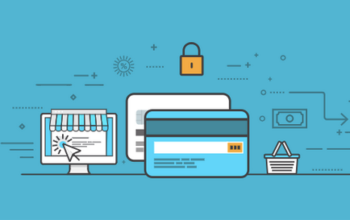To start things off, you’re probably reading this TriadaNet’s post about the consequences of a data breach on your mobile device or PC. Ever wondered how reading articles from the comfort of your home is possible? Well, your guess is as good as mine – the Internet!
However, despite all the significant highs associated with this digital creation, there’s a drawback. As technology evolves, some individuals are also putting in a whole lot of effort to find loopholes they can exploit with ease. The result? A data breach.
In this article, we’ll give an overview of the term “data breach,” its types, and GDPR data breach consequences some EU organizations are sure to face due to infringements.
Data Breach: An Introduction
Even without foundation on this term, most people know what data breaches are. Here, this concept’s most popular definition is a scenario where personal data or information is exposed. While this conceptualization works, data breaches are so much more than that, as it affects the way we live.
So, what’s a data breach? Also known as a data leak, a data breach, in simple terms, is a violation of the security layer inherent in an organization to gain unauthorized access to protected information.
While there’s a stereotype that likens data breaches to a data loss, it’s pertinent to note that these terms are purely distinct, as the latter occurs due to deletion, hardware corruption, and a host of other factors.
Contrary to popular beliefs, protected data cuts across individual information about patrons or workers such as card payment details and social security numbers, to organizational details such as trade secrets, the process of production, information concerning recent purchases, and lawsuit or litigation information.
Although a vast array of data breaches are intentional, users might unknowingly release personal information to the wrong party via email or text.
Causes of Data Breaches
Apart from human errors, here are some common causes of data breaches. They include:
Making Use of Weak Credentials
When users of a particular platform use weak credentials such as passwords, hackers can quickly gain entry into their files and details. Here, all they need to do is make a correct guess!
Using Applications That Feature a Back Door
In our homes, we receive visitors using the front door. For context, an application might feature back doors without the knowledge of users.
Since the security systems inherent have poor designs and implementations, they’re some significant loopholes that cybercriminals can have a field day accessing.
Malware
Commonly known as malicious software that users might unknowingly install when surfing the Internet, malware effectively grants hackers access to protected data.
Social Engineering
Have you ever received an email informing you of an offer that’s just too good to be true? While you might be buzzing at first, these are offerings created by cybercriminals on the prowl.
In a society where most people are looking to make easy money without working for it, this is another medium for hackers to get private information without hassles.
Physical Attacks
You’re probably wondering why this is on the list as most data breaches occur online, right?
Here, cyber criminals step up their fraudulent activities a notch by entering an organization and work their ways through to computer systems, with movements so stealthy.
Consequences of Data Breaches: How Does GDPR Come to the Fore?
Before we look at some GDPR data breach consequences, it’s crucial to have a background on what this regulatory body entails.
The General Data Protection Regulation (GDPR) came to the fore in May 2018. Since its implementation, this set of regulations has shut down some companies and restricted others as they struggle with certain caveats inherent.
That said, it’s pertinent to note that these regulations only apply to companies or organizations based in the European Union (EU).
With these rules in place, individuals now have certain rights over their private information and how companies can make use of them for the sole purpose of fostering data breach prevention.
While integrating these set of requirements are sort of expensive, EU companies would want to get up to speed with the following GDPR data breach consequences:
Fines
The financial impact of a data breach is the central talking point of the GDPR. When a company experiences a data breach, they are to file a report with any relevant supervisory authority. This report should be made not more than 72 hours after the breach.
In terms of fines, GDPR accords these authorities the right to impose a penalty on “at-fault” companies or organizations.
For context, fines for grievous infringements could sum up to $20 million or 4% of the annual global turnover – whichever is greater.
Legal Action From Patrons Bordering on Data Breaches
Patrons can file lawsuits against companies that infringed on the GDPR, resulting in a data breach.
To address these issues effectively, the organization would need to spend time and money, which can ultimately lead to the business’s downfall.
Reputational Damage
After a data breach occurs, the company’s reputation drops to an all-time low as intending patrons have reservations about their personal information not being secure.
Directors, Officers, and Professional Advisers
After a data breach, the organization’s senior staff might are the primary culprits for infringing on GDPR. Why? Because they’re the officials responsible for approving the relevant security systems and practices in place.
On the other hand, if the company that experienced the breach sought advice from an external advisory body, they can file a lawsuit of negligence against that firm.
Summary
The impact of data breaches is massive for companies, especially in terms of fines when they’re found wanting. Although making a company GDPR-compliant isn’t something that happens overnight; you can make an IT audit to see where some loopholes are and make necessary changes.
Are you still looking for a long-term security solution for your small business? Take that huge step by partnering with Triada Networks to make your growing organization secure at all times without having to break the bank!
With Triada at the helm of affairs for all your security needs, have peace of mind, and focus on running your business smoothly.
Related Posts












